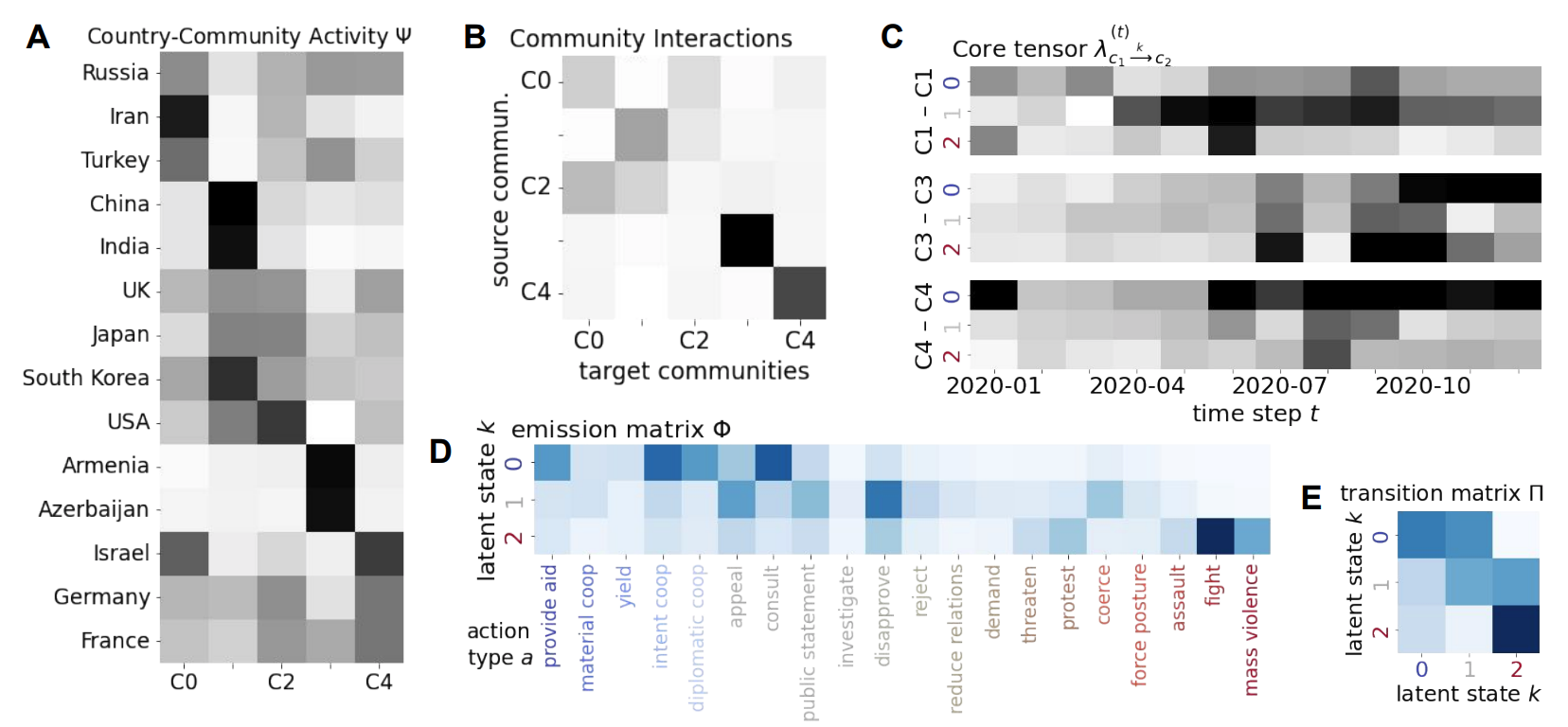Many dynamical systems exhibit latent states with intrinsic orderings such as “ally”, “neutral” and “enemy” relationships in international relations. Such latent states are evidenced through entities’ cooperative versus conflictual interactions which are similarly ordered. Models of such systems often involve state-to-action emission and state-to-state transition matrices. It is common practice to assume that the rows of these stochastic matrices are independently sampled from a Dirichlet distribution. However, this assumption discards ordinal information and treats states and actions falsely as order-invariant categoricals, which hinders interpretation and evaluation. To address this problem, we propose the Ordered Matrix Dirichlet (OMD): rows are sampled conditionally dependent such that probability mass is shifted to the right of the matrix as we move down rows. This results in a well-ordered mapping between latent states and observed action types. We evaluate the OMD in two settings: a Hidden Markov Model and a novel Bayesian Dynamic Poisson Tucker Model tailored to political event data. Models built on the OMD recover interpretable latent states and show superior forecasting performance in few-shot settings. We detail the wide applicability of the OMD to other domains where models with Dirichlet-sampled matrices are popular (e.g. topic modeling) and publish user-friendly code.

The Ordered Matrix Dirichlet for Modeling Ordinal Dynamics
January 27, 2023
Cite this Paper (BibTeX)